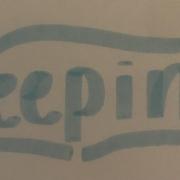
As technology progresses , it becomes increasingly integrated within our society, including education. Speaking to my parents in regards to the technology used in my school, it became clear to me as to the immense distance that the techniques used to teach young people has come. As knowledge of the inner workings of the human brain increases, the education system seems to show obvious adaptations to compensate for new knowledge. Recent additions to teaching methods include often use of “teamwork quiz games,” including Kahoot and Quizlet. As well as new digital teaching techniques which prove to be useful for learning words in languages et cetera, technology continues to proves to be a more efficient and easy-to-use form of learning and organisation. Previous worries stemming from losing sheets and being disorganised disappear as everything can now be saved online.
I questioned other students at Hampton as to their view on the effectiveness and usefulness of digital means of learning. Tom Stephens (year 10), stated that “Yes, new technology allows for me to be more organised and efficient in learning and revision, however I find that because my iPad holds both schoolwork and entertainment, it is too easy for me to become distracted whilst working.” Distraction was a common theme amongst other students as they discussed the “inconvenience of having entertainment and work so close together, it’s hard to repel the temptation of apps such as Netflix and YouTube.” This notion of difficulty in terms of not giving in to distractions is backed by me also.
Logically, it doesn’t make sense for a distraction to be so close to work. As apps such as Netflix, Youtube and games are designed to manipulate users into playing their game for longer, it seems that “entertainment” apps have the specific purpose of distraction. As entertainment applications benefit from users using their apps, it makes sense for them to attempt to entice people working on the same platform to leave work and use their app. Because work has always usually been considered something less enjoyable than entertainment , it is hard for people using iPads for work to resist the constant enticement of a more interesting form of stimulation so close by.
Therefore, although it proves to be both efficient and stimulating, working on iPads/on a computer is difficult due to the constant temptation of distractions. In order for digital education to reach its full potential, I believe necessary steps must be taken in order to maximise its efficiency and effectiveness. Perhaps through device-integrated systems which can be set up to prevent distractions.



























